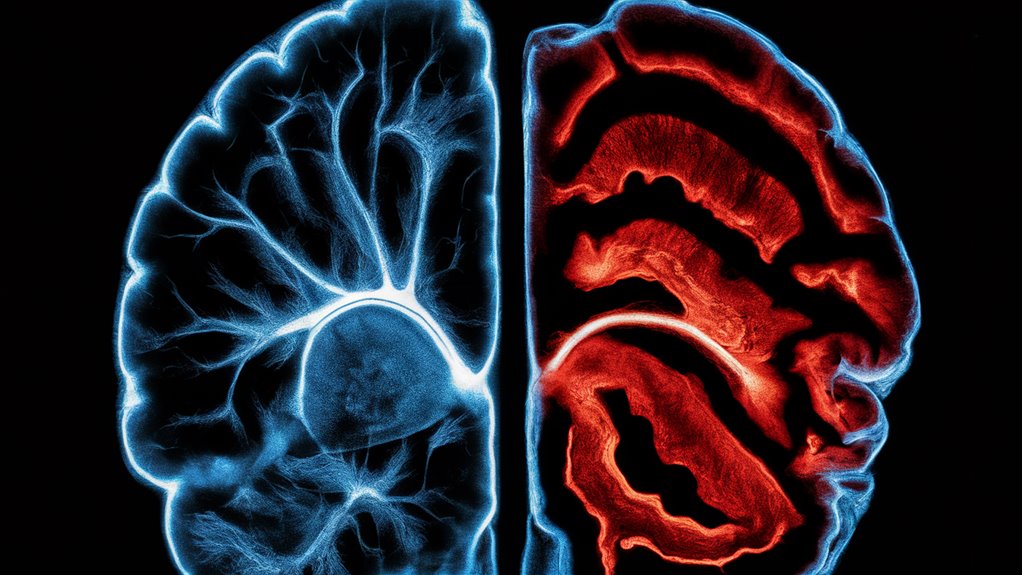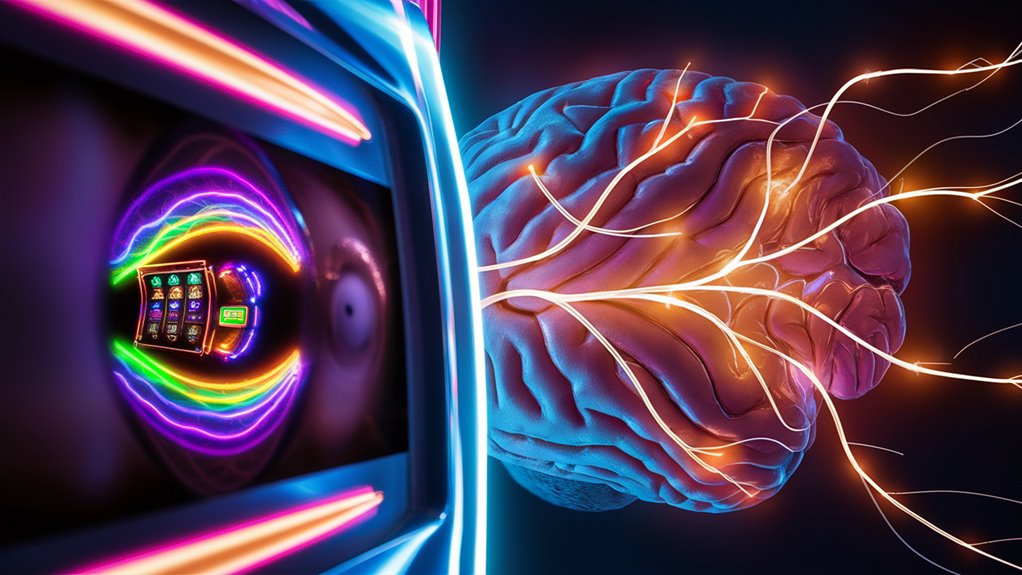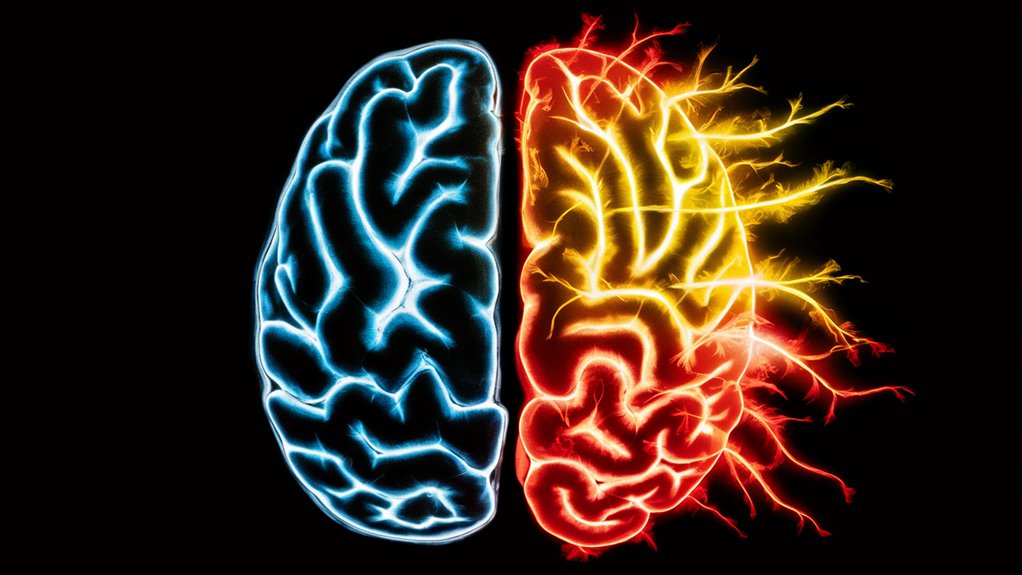How Gambling Changes the Brain: A Look Deep Into It

The Brain and Its Love for Gambling
When you gamble, two spots in your brain – the nucleus accumbens and ventral tegmental area – send out dopamine, making you feel great. This brain link leads to strong rewards that make you want to keep gambling. 이 자료 참고하기
Brain Changes and Loving Risk
More gambling changes your brain. Your brain wants bigger risks for the same dopamine rush, all while your D2 receptors are dropping. These changes shift how your brain sees rewards and risks.
What Gambling Does to the Brain Over Time
Gambling for a long time changes the prefrontal cortex and ventral striatum, which help you make choices and control urges. These changes can mess up:
- How you see risk
- Your money choices
- How you handle emotions
- How you act
The Almost-Win Effect
Almost wins make your brain release lots of dopamine, like real wins. This tricks you into playing more, even when losing money – keeping you in the game.
Healing and Brain Flexibility
Though gambling changes your brain, its flexibility helps it heal. Knowing these brain waves helps in:
- Making good treatment plans
- Choosing the right help steps
- Supporting you as you get better
- Stopping you from going back to gambling
The Brain Loves Rewards
Getting How Your Brain Likes Rewards from Gambling
The Brain Science Behind Gambling Fun
Being hooked on gambling lights up the brain’s pleasure center, like drugs do.
The nucleus accumbens and ventral tegmental area push out dopamine, filling you with joy and a sense of waiting for more. This happens over and over during gambling, especially with almost-wins and while you wait to see if you’ve won.
The Brain Routes and Joy Maps
Your brain’s reward system uses the same paths for gambling as it does for other joys like food, love, and hanging out with others.
The amygdala and hippocampus tie strong emotions to gambling wins, making you want to gamble more, wiring your brain deeper into addiction.
Brain Changes and Craving More
With each gamble, your brain changes, making less natural dopamine and needing more.
This change is like what happens with drug habits, often needing riskier bets for a thrill. These changes make you act more on compulsion.
Your Brain on Dopamine from Gambling
How Dopamine Makes Gambling Hard to Resist

The Brain Addicted to Gambling
Dopamine rushes during gambling are among the most intense brain events in addictive acts.
Your brain’s reward center isn’t just active during wins, but also during near-misses and waiting for a win, making a tough cycle of brain activity that’s hard to break.
The Throw of the Dice and Dopamine
Unexpected wins, a big part of gambling, cause bigger dopamine spikes than expected ones.
The brain’s dopamine centers kick into high gear during the wait – the tense time between betting and the result.
More Gambling, More Risk Needs
As you gamble more, your brain adjusts, needing more risks to feel the rush.
This leads to a dangerous cycle of upping your gambling game and a bigger chance of addiction.
What Makes the Brain Love Gambling:
- Triggers from expecting rewards
- Reactions to almost-wins
- Unsure reward times
- Liking risk
- Brain changes
The Brain Routes Leading to Addiction
The Brain Paths to Hooked on Gambling
The Inside Story of a Gambling Hook
Brain paths in gambling addiction look a lot like those in other addictions, with strong links between the prefrontal cortex, nucleus accumbens, and amygdala.
Gambling over and over changes these key brain parts, deeply altering brain structure and how it works.
Brain Waves and Reward Chasing
The brain base of gambling addiction involves big disruptions in the brain’s reward system by changing glutamate and GABA levels. These changes mess with how nerves connect, especially in the reward paths. Gambling in Cryptocurrency Casinos
Constant gambling lowers reward area reactions, pushing people to riskier bets for the same emotional feeling.
Brain Patterns and Getting Better Challenges
The anterior cingulate cortex and insula show more action during almost-wins in gambling, pushing the addiction despite money lost.
These brain changes stick around after you stop gambling, raising the chances of starting again and making getting better harder.
